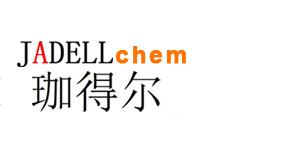Recombinant Human Transforming Growth Factor alpha (TGF-α) 是一種結(jié)合表皮生長(zhǎng)因子 (EGF) 受體并刺激細(xì)胞生長(zhǎng)的 50 個(gè)氨基酸多肽。
Synonyms
rHuTGF-α; ETGF; TGF-type I ; 重組人轉(zhuǎn)化生長(zhǎng)因子 α
Species
HumanSource
E. coli Accession
P01135 Gene ID
7039 Molecular Weight
Approximately 5.8 kDa AA Sequence
VVSHFNDCPD SHTQFCFHGT CRFLVQEDKP ACVCHSGYVG ARCEHADLLA Biological Activity
The ED50 is <0.2 ng/mL as measured by BALB/c 3T3 cells, corresponding to a specific activity of >5 × 106 units/mg. Appearance
Lyophilized powder. Formulation
Lyophilized after extensive dialysis against PBS. Endotoxin Level
<0.2 EU/μg, determined by LAL method. Reconstitution
Reconstitute the lyophilized recombinant Human Transforming Growth Factor alpha (rHuTGF-α) to 100 μg/mL using ddH2O or diluted with PBS. Storage & Stability
Lyophilized recombinant Human Transforming Growth Factor alpha (rHuTGF-α) is stored at -20°C. After reconstitution, it is stable at 4°C for 1 week or -20°C for longer. It is recommended to freeze aliquots at -20°C or -80°C for extended storage. Shipping
Room temperature in continental US; may vary elsewhere. Background
Transforming growth factor alpha (TGF-α) is a principal molecule in the normal and neoplastic development of the mammary gland. Binding of TGF-α to the epidermal growth factor receptor (EGFR), activates the EGFRs' endogenous tyrosine kinase activity and stimulates growth of the epithelium in the virgin and pregnant mouse mammary gland. TGF-α expression can be detected in breast cancer cells in vivo and in vitro and overexpression can elicit partial transformation or immortalized human and rodent mammary epithelial cells[1][2]. |





